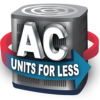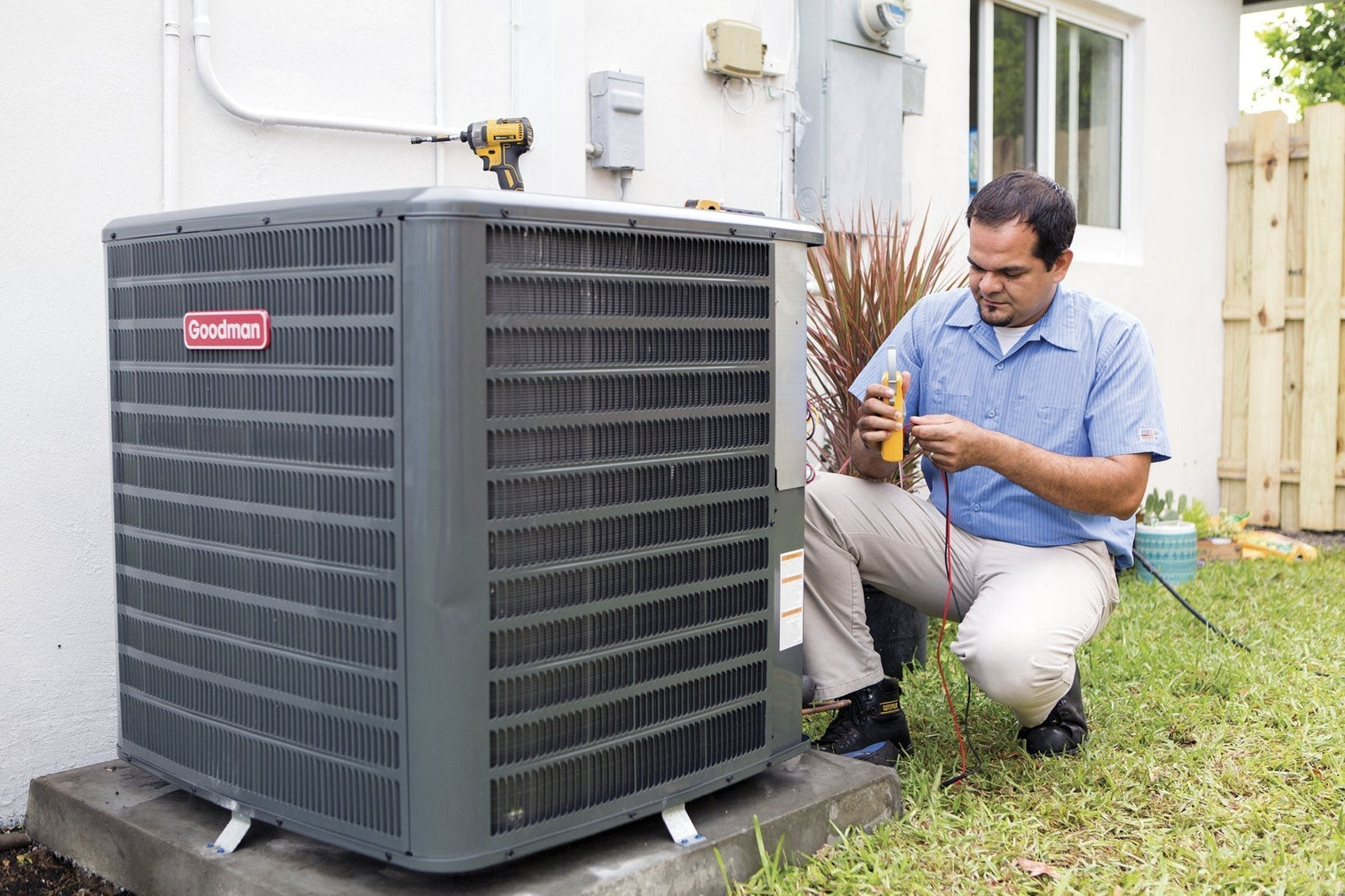As HVAC systems evolve, Goodman leads the way with its innovative R32 refrigerant technology. Whether you’re a seasoned contractor or exploring modern HVAC solutions, understanding why the Goodman R32 HVAC system is an ideal choice can make all the difference.
This guide explores the benefits of installing a Goodman R32 AC unit, and how it outperforms traditional R410A systems in terms of efficiency, installation ease, and environmental impact.
What Makes the Goodman R32 HVAC System More Efficient?
The Goodman R32 HVAC system uses R32 refrigerant, known for its high energy efficiency and low Global Warming Potential (GWP). Compared to R410A, R32 has nearly one-third the GWP, making it a more environmentally responsible option.
R32 also improves heat transfer performance, which contributes to higher SEER2 ratings. This results in:
-
Lower utility bills
-
Greater operational efficiency
-
Easier regulatory compliance
Contractors can confidently recommend Goodman R32 air conditioning units to environmentally conscious clients looking to cut energy costs.
📌 Explore our full Goodman HVAC System collection.
Is Installation Different Than R410A Systems?
Not at all! Installing Goodman R32 AC units is as straightforward as working with R410A. The only notable change is the left-threaded refrigerant jugs, which come with adapters. Beyond that, the installation remains seamless thanks to:
-
Pre-marked wiring
-
Accessible service ports
-
Familiar Goodman system design
Whether you’re upgrading a current system or working on a new build, Goodman split systems with R32 simplify your job and save installation time.
Are Goodman R32 AC Units Quieter?
Yes — significantly. Goodman R32 systems come equipped with advanced compressor technology that minimizes operational noise. Homeowners benefit from:
-
Quieter indoor and outdoor units
-
Peaceful environments near bedrooms and living spaces
-
Fewer complaints and callbacks for noise
Is R32 Safe to Use?
R32 is classified as an A2L refrigerant, meaning it is mildly flammable. However, Goodman R32 heat pump condensers are designed with safety in mind. By following standard HVAC installation guidelines — leak checks, proper ventilation, and manufacturer instructions — R32 is safe and reliable.
Are These Units Compatible with Existing Infrastructure?
Absolutely. Goodman R32 air conditioners are designed to integrate with standard ductwork and residential systems. That means minimal retrofitting and no need to overhaul existing HVAC setups — a major win for contractors and homeowners alike.
Explore more: Goodman R32 Air Conditioners
Environmental Benefits of R32
Switching to Goodman R32 HVAC systems aligns with future regulations that favor low-GWP refrigerants. With a GWP nearly 70% lower than R410A, R32 helps reduce your carbon footprint and stay ahead of environmental compliance.
Learn more about Goodman R32 Heat Pump Condensers.
Why Contractors Should Make the Switch Now
From easy installation to customer satisfaction, Goodman R32 heat pumps are built for professionals. With fewer service issues, quieter operation, and strong energy savings, these systems offer lasting value.
Final Thoughts: Choose Goodman R32 for the Future of HVAC
The transition to R32 is not just a smart environmental move — it’s a smart business decision. With Goodman’s advanced engineering, familiar installation process, and exceptional performance, upgrading to a Goodman R32 complete system gives contractors and homeowners the best of all worlds.
FAQs
-
How to Install R32 Refrigerant
Installing R32 is almost the same as R410A. Just use the special adapter that comes with the system, check carefully for leaks, keep good airflow while working, and follow basic safety steps. This makes the process quick and easy for contractors.
-
How to Install R32 Unit
Installing an R32 unit is very similar to working with traditional systems—just use the left-thread adapter that comes in the kit, connect neatly labeled wiring and service ports, follow standard safety steps like leak checking and proper ventilation, and you’re good to go!
-
How to Install an R-32 Condenser Unit?
Installing an R-32 condenser is almost the same as a conventional system. Just place it on a solid, level base with good clearance for airflow, use the left-thread adapter included in the kit, connect the pre-marked ports and wiring, ensure proper ventilation and leak checks, then finish with basic safety checks, making the install smooth and efficient for any contractor.



